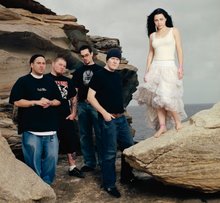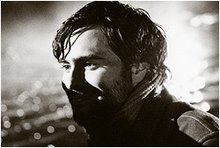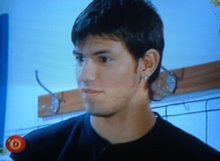TELLING STORIES
(by Maeve Binchy)
(by Maeve Binchy)
People always said that Irene had total recall. She seemed to remember the smallest details of things they had long forgotten — the words of old pop songs, the shades of old lipsticks, minute-by-minute reconstructions of important events like Graduation Day, or people's weddings. If ever you wanted a step-by-step account of times past, they said to each other: ask Irene.
Irene rarely took herself through the evening before the day she was due to be married. But if she had to then she could have done it with no difficulty. It wasn't hard to remember the smells: the lilac in the garden, the polish on all forniture, the orange blossom in the house. She even remembered the rich smell of the hand-cream she was massaging carefully into her hands when she heard the doorbell ring. It must be a late present, she thought, or possibly yet another fussy aunt who had come up from the country for the ceremony and arrived like a homing pigeon at the house.
She was surprised to hear Andrew's voice, talking to her younger sister downstairs. Andrew was meant to be at his home dealing with his relations just as Irene had been doing. He had an uncle, a priest, flying in from the African Missions to assist at the wedding. Andrew's grandmother was a demanding old lady who regarded every gathering as in some way centring around her; Irenes was surprised that Andrew had been allowed to escape.
Rosemary, her sister and one of the bridesmaids, had no interest in anything apart from the possible appearance of a huge spot on her face. She waved Andrew airily upstairs.
'She's been up there titivating herself for hours,' Irene heard her say. Before she had time to react to Rosemary's tactlesness, Irene heard Andrew say 'Oh God', in a funny, choked sort of voice, and before he even came into the room, she knew something was very wrong.
Andrew's face was as white as the dress that hung between sheets of tissue paper on the outside of the big mahogany wardrobe. His hands shook and trembled like the branches of the beautiful laburnum tree outside her window, the yellow blossom shaking in the summer breeze.
He tried to take her hand but she was covered in hand-cream. Irene decided that somehow it was imperative that she keep rubbing the cream still further in. It was like not walking on the crack in the road: f she kept massaging her hands then he couldn't take them in his, and he couldn't tell her what awful thing he was about to tell her.
On and on she went rhytmically, almost hypnotically, as if she were pulling on tight gloves. Her hands never stopped moving; her face never moved at all.
He fumbled for words, but Irene didn't help him.
The words came eventually, tumbling over each other, contradicting each other even, punctuated with apology and self-disgust. It wasn't that there was anyone else, Lord no, and it wasn't even as if he has stopped loving her, in many ways he had never loved her more than now, looking at her and knowing that he was destroying all their dreams and their hopes, but he had thought about it very seriously, and the truth was that he wasn't ready, he wasn't old enough, maybe technically he was old enough, but in his heart he didn't feel old enough to settle down, he wasn't certain enough that this was the Right Thing. For either of them, he added hastily, wanting Irene to know that it was in her interests as well as his.
On and on, she worked the cream into her hands and wrists; even a little way up her arms.
She sat impassively on her little blue bedroom-stool, her frilly dressing-table behind her. There were no tears, no tantrums. There were not even any words. Eventually he could speak no more.
'Oh Irene, say something for God's sake, tell me how much you hate me, what I've done to your life.' He almost begged to be railed against.
She spoke slowly, her voice was very calm. 'But of course I don't hate you,' she said, as if explaining something to a slow-witted child. 'I love you, I always will, and let's look at what you've done to my life... You've changed it certainly...' Her eyes fell on the wedding dress.
Andrew started again. Guilt and shame poured from him in a torrent released by her unexpected gentleness. He would take it upon himself to explain to everyone, he would tell her parents now. He would explain everything to the guests, he would see that the presents were returned. He would try to compensate her family financially for all the exprense they had one to. If everyone thought this was the right thing to do he would go abroad, to a faraway place like Australia or Canada or Africa... somewhere they needed young lawyers, a place where nodoby from here need ever look at him again and remember all the trouble he had caused.
And then suddenly he realised that he and he alone was doing the talking; Irene sat still, apart from those curious hand movements, as if she had not heard or understood what he was saying. A look of horror came over his face: perhaps she did not understand.
'I mean t, Irene,' he said simply. 'I really do mean it, you know, I wish I didn't.'
'I know you mean it.' Her voice was steady, her eyes were clear. She did understand.
Andrew clutched at a straw. 'Perhaps you feel the same. Perhaps we both want to get out of this? Is that whay you are saying?' He was so eager to belive it, his face almost shone with enthusiasm.
But there was no quarter here. In a voice that didn't shake, wit no hint of a tear in her eye, Irene said that she loved him and would always love him. But that it was far better, if he felt he couldn't go through with it, that this should be discovered the night before the marriage, rather than the night after. This way at least one of them would be free to make a different marriage when the time came.
'Well both of us, surely?' Andrew was bewildered.
Irene shook her head. 'I can't see myself marrying anyone else but you,' she said. There was no blame, regret, accusation. Just a statement.
In the big house, where three hundred guests were expected tomorrow, it was curiously silent. Perhaps the breeze had died down; they couldn't even hear the flapping of the edges of the marquee on the lawn.
The silencia was too long between them. But Andrew knew she was not going to break it. 'So what will we do? First, I mean?' he asked her.
She looked at him pleasantly as if he had asked what record he should put on the player. She said nothing.
'Tell our parents, I suppose, yours first. Are they downstairs?' he suggested.
'No, they're over at the golf club, they're having a little reception or drink or something for those who aren't coming tomorrow.'
'Oh, God,' Andrew said.
There was another silence.
'Do you think we should go and tell my parents then? Grandmother will need some time to get adjusted...'
Irene considered this. 'Possibly,' she said. But it was unsatisfactory.
'Or maybe the caterers,' Andrew said. 'I saw them bustling around setting things up...' His voice broke. He seemed about to cry. 'Oh God, Irene, it's a terrible mess.'
'I know,' she agreed, as if they were talking about a rain-cloud or some other unavoidable irritation to the day.
'And I suppose I should tell Martin, he's been fussing so much about the etiquette of it all and getting things in the right order. In a way he may be relieved...' Andrew gave a nervous little laugh but hastily corrected himself. 'But sorry, of course, mainly sorry, of course, very, very sorry that things haven't worked out.'
'Yes. Of course,' Irene agreed politely.
'And the bridesmaids? Don't you think we should tell Rosemary now, and Catherine? And that you should ring Rita and tell her... and tell her... that... well that...'
'Tell her what, exactly?'
'Well, tell her that we've changed our minds...'
'That you've changed your mind, to be strictly honest,' Irene said.
'Yes, but you agree,' he pleaded.
'What do I agree?'
'That if it is the Wrong Thing to do, then it were better we know now than tomorrow when it's all too late and we are man and wife till death...' his voice ran out.
'Ah yes, but don't you see, I don't think we are doing the Wrong Thing getting married.'
'But you agreed...' He was in a panic.
'Oh, of course I agreed, Andrew, I mean what on earth would be the point of not agreeing? Naturally we can't go through with it. But that's not to say that I'm calling it off.'
'No, no, but does that matter as much as telling people... I mean now that we know that it won't take place, isn't it unfair to people to let them think that it will?'
'Yes and no.'
'But we can't have them making the food, getting dressed...'
'I know.' She was thoughtful.
'I want to do what's best, what's the most fair,' Andrew said. And he did, Irene could see that, in the situation which he had brought about, he still wanted to be fair.
'Let's see,' she suggested. 'Who is going to be most hurt by all this?'
He thought about it. 'Your parents probably, they've gone to all this trouble...' He waved towards the garden where three hundred merrymakers had planned to stroll.
'No, I don't think they're the most hurt.'
'Well, maybe my uncle, the whole way back from Africa and he had to ask permission from a bishop. Or my grandmother... or the bridesmaids. They won't get a chance to dess up.' Andrew struggled to be fair.
'I think that I am the on who will be most hurt.' Irene's voice wasn't even slightly raised. It was as if she had given the problem equally dispassionate judgement.
'Im mean, my parents have other daughters. There'll be Rosemary and Catherine, one day they'll have weddings. And your uncle, the priest... well he'll have a bit of a holiday. No, I think I am the one who is the most upset, I'm not going to marry the man I love, have the life I thought I was going to.'
'I know, I know.' He sounded like someone sympathising over a bereavement.
'So I thought that perhaps you'd let me handle it my way.'
'Of course, Irene, that's why I'm here, whatever you say.'
'I say we shouldn't tell anyone anything. Not tonight.'
'I won't change my mind, in case that's what you're thinking.'
'Lord no, why should you? It's much too serious to be flitting about, chopping and changing.'
He handed their future into her hands. 'Do it whatever way you want. Just let me know and I'll do it.' He was prepared to pay any price to get the wedding called off.
But Irene didn't allow herself the time to think about that. 'Let me be the one not to turn up,' she said. 'Let me be seen to be the partner who had second thoughts. That way at least I get out of it with some dignity.'
He agreed. Grooms had been left standing at the altar before. He would always say afterwards that he had been greatly hurt but he respected Irene's decision.
'And you won't tell anyone?' she made him promise.
'Maybe Martin?' he suggested.
'Particulary not Martin, he'd give the game away. In the church you must be seen to be waiting for me.'
'But your father and mother... is it fair to leave it to the last minute?'
'They'd prefer to think that I let you down rather than the other way. Who wants a daughter who has been abandoned by the groom?'
'It's not that...' he began
'I know that, silly, but not everyone else does.' She had stopped creaming her hands. They talked like old friends and conspirators. The thing would only succeed if nobody had an inkling.
'And afterwards...' He seemed very eager to know every step of her plan.
'Afterwards...' Irene was thoughtful. 'Oh, afterwards we can go along being friends... until you meet someone else... People will admire you, think you are very forgiving, too tolerant even... there'll be no awkwardness. No embarrassment.'
Andrew stood at the gate of the big house to wave goodbye; she sat by her window under the great laburnum tree and waved back. She was a girl in a million. What a pity he hadn't met her later. Or proposed to her later, when he was ready to be married. His stomach lurched at the thought of the mayhem they were about to unleash the following day. He went home with a heavy heart to hear stories of the Missions from his uncle the priest, and tales of long-gone grandeur from his grandmother.
'It's only natural for you to be nervous,' he said to Andrew at least forty times. 'It's only natural for you to worry about your speech, but remember the most important thing is to thank Irene's parents for giving her to you.'
When they heard the loud sniffs from Andrew's grandmother, the Best Man had soothing remarks also. 'It's only natural for elderly females to cry at weddings,' he said.
Andrew stood there, his stomach like lead. Since marriage was instituted, no groom had stood like this in the certain knowledge that his bride was not just a little late, or held up in traffic, or adjusting her veil — all the excuses that Martin was busy hissing into his ear.
He felt a shame like he had ever known, allowing all these three hundred people to assemble in a church for a ceremony that would not take place. He loked fearfully at the parish priest, and at his own uncle. It took some seconds for it to sink in that the congregation had risen to its feet, and that the organist had crashed into the familiar chords of 'Here Comes The Bride'.
He turned like any groom turns and saw Irene, perfectly at ease in her father's arm, smiling to the left and smiling to the right.
With his mouth wide open and his face whiter than the dess she wore, he looked into her eyes. He felt Martin's fingers in his ribs and he stepped forward to stand beside her.
Irene rarely took herself through the evening before the day she was due to be married. But if she had to then she could have done it with no difficulty. It wasn't hard to remember the smells: the lilac in the garden, the polish on all forniture, the orange blossom in the house. She even remembered the rich smell of the hand-cream she was massaging carefully into her hands when she heard the doorbell ring. It must be a late present, she thought, or possibly yet another fussy aunt who had come up from the country for the ceremony and arrived like a homing pigeon at the house.
She was surprised to hear Andrew's voice, talking to her younger sister downstairs. Andrew was meant to be at his home dealing with his relations just as Irene had been doing. He had an uncle, a priest, flying in from the African Missions to assist at the wedding. Andrew's grandmother was a demanding old lady who regarded every gathering as in some way centring around her; Irenes was surprised that Andrew had been allowed to escape.
Rosemary, her sister and one of the bridesmaids, had no interest in anything apart from the possible appearance of a huge spot on her face. She waved Andrew airily upstairs.
'She's been up there titivating herself for hours,' Irene heard her say. Before she had time to react to Rosemary's tactlesness, Irene heard Andrew say 'Oh God', in a funny, choked sort of voice, and before he even came into the room, she knew something was very wrong.
Andrew's face was as white as the dress that hung between sheets of tissue paper on the outside of the big mahogany wardrobe. His hands shook and trembled like the branches of the beautiful laburnum tree outside her window, the yellow blossom shaking in the summer breeze.
He tried to take her hand but she was covered in hand-cream. Irene decided that somehow it was imperative that she keep rubbing the cream still further in. It was like not walking on the crack in the road: f she kept massaging her hands then he couldn't take them in his, and he couldn't tell her what awful thing he was about to tell her.
On and on she went rhytmically, almost hypnotically, as if she were pulling on tight gloves. Her hands never stopped moving; her face never moved at all.
He fumbled for words, but Irene didn't help him.
The words came eventually, tumbling over each other, contradicting each other even, punctuated with apology and self-disgust. It wasn't that there was anyone else, Lord no, and it wasn't even as if he has stopped loving her, in many ways he had never loved her more than now, looking at her and knowing that he was destroying all their dreams and their hopes, but he had thought about it very seriously, and the truth was that he wasn't ready, he wasn't old enough, maybe technically he was old enough, but in his heart he didn't feel old enough to settle down, he wasn't certain enough that this was the Right Thing. For either of them, he added hastily, wanting Irene to know that it was in her interests as well as his.
On and on, she worked the cream into her hands and wrists; even a little way up her arms.
She sat impassively on her little blue bedroom-stool, her frilly dressing-table behind her. There were no tears, no tantrums. There were not even any words. Eventually he could speak no more.
'Oh Irene, say something for God's sake, tell me how much you hate me, what I've done to your life.' He almost begged to be railed against.
She spoke slowly, her voice was very calm. 'But of course I don't hate you,' she said, as if explaining something to a slow-witted child. 'I love you, I always will, and let's look at what you've done to my life... You've changed it certainly...' Her eyes fell on the wedding dress.
Andrew started again. Guilt and shame poured from him in a torrent released by her unexpected gentleness. He would take it upon himself to explain to everyone, he would tell her parents now. He would explain everything to the guests, he would see that the presents were returned. He would try to compensate her family financially for all the exprense they had one to. If everyone thought this was the right thing to do he would go abroad, to a faraway place like Australia or Canada or Africa... somewhere they needed young lawyers, a place where nodoby from here need ever look at him again and remember all the trouble he had caused.
And then suddenly he realised that he and he alone was doing the talking; Irene sat still, apart from those curious hand movements, as if she had not heard or understood what he was saying. A look of horror came over his face: perhaps she did not understand.
'I mean t, Irene,' he said simply. 'I really do mean it, you know, I wish I didn't.'
'I know you mean it.' Her voice was steady, her eyes were clear. She did understand.
Andrew clutched at a straw. 'Perhaps you feel the same. Perhaps we both want to get out of this? Is that whay you are saying?' He was so eager to belive it, his face almost shone with enthusiasm.
But there was no quarter here. In a voice that didn't shake, wit no hint of a tear in her eye, Irene said that she loved him and would always love him. But that it was far better, if he felt he couldn't go through with it, that this should be discovered the night before the marriage, rather than the night after. This way at least one of them would be free to make a different marriage when the time came.
'Well both of us, surely?' Andrew was bewildered.
Irene shook her head. 'I can't see myself marrying anyone else but you,' she said. There was no blame, regret, accusation. Just a statement.
In the big house, where three hundred guests were expected tomorrow, it was curiously silent. Perhaps the breeze had died down; they couldn't even hear the flapping of the edges of the marquee on the lawn.
The silencia was too long between them. But Andrew knew she was not going to break it. 'So what will we do? First, I mean?' he asked her.
She looked at him pleasantly as if he had asked what record he should put on the player. She said nothing.
'Tell our parents, I suppose, yours first. Are they downstairs?' he suggested.
'No, they're over at the golf club, they're having a little reception or drink or something for those who aren't coming tomorrow.'
'Oh, God,' Andrew said.
There was another silence.
'Do you think we should go and tell my parents then? Grandmother will need some time to get adjusted...'
Irene considered this. 'Possibly,' she said. But it was unsatisfactory.
'Or maybe the caterers,' Andrew said. 'I saw them bustling around setting things up...' His voice broke. He seemed about to cry. 'Oh God, Irene, it's a terrible mess.'
'I know,' she agreed, as if they were talking about a rain-cloud or some other unavoidable irritation to the day.
'And I suppose I should tell Martin, he's been fussing so much about the etiquette of it all and getting things in the right order. In a way he may be relieved...' Andrew gave a nervous little laugh but hastily corrected himself. 'But sorry, of course, mainly sorry, of course, very, very sorry that things haven't worked out.'
'Yes. Of course,' Irene agreed politely.
'And the bridesmaids? Don't you think we should tell Rosemary now, and Catherine? And that you should ring Rita and tell her... and tell her... that... well that...'
'Tell her what, exactly?'
'Well, tell her that we've changed our minds...'
'That you've changed your mind, to be strictly honest,' Irene said.
'Yes, but you agree,' he pleaded.
'What do I agree?'
'That if it is the Wrong Thing to do, then it were better we know now than tomorrow when it's all too late and we are man and wife till death...' his voice ran out.
'Ah yes, but don't you see, I don't think we are doing the Wrong Thing getting married.'
'But you agreed...' He was in a panic.
'Oh, of course I agreed, Andrew, I mean what on earth would be the point of not agreeing? Naturally we can't go through with it. But that's not to say that I'm calling it off.'
'No, no, but does that matter as much as telling people... I mean now that we know that it won't take place, isn't it unfair to people to let them think that it will?'
'Yes and no.'
'But we can't have them making the food, getting dressed...'
'I know.' She was thoughtful.
'I want to do what's best, what's the most fair,' Andrew said. And he did, Irene could see that, in the situation which he had brought about, he still wanted to be fair.
'Let's see,' she suggested. 'Who is going to be most hurt by all this?'
He thought about it. 'Your parents probably, they've gone to all this trouble...' He waved towards the garden where three hundred merrymakers had planned to stroll.
'No, I don't think they're the most hurt.'
'Well, maybe my uncle, the whole way back from Africa and he had to ask permission from a bishop. Or my grandmother... or the bridesmaids. They won't get a chance to dess up.' Andrew struggled to be fair.
'I think that I am the on who will be most hurt.' Irene's voice wasn't even slightly raised. It was as if she had given the problem equally dispassionate judgement.
'Im mean, my parents have other daughters. There'll be Rosemary and Catherine, one day they'll have weddings. And your uncle, the priest... well he'll have a bit of a holiday. No, I think I am the one who is the most upset, I'm not going to marry the man I love, have the life I thought I was going to.'
'I know, I know.' He sounded like someone sympathising over a bereavement.
'So I thought that perhaps you'd let me handle it my way.'
'Of course, Irene, that's why I'm here, whatever you say.'
'I say we shouldn't tell anyone anything. Not tonight.'
'I won't change my mind, in case that's what you're thinking.'
'Lord no, why should you? It's much too serious to be flitting about, chopping and changing.'
He handed their future into her hands. 'Do it whatever way you want. Just let me know and I'll do it.' He was prepared to pay any price to get the wedding called off.
But Irene didn't allow herself the time to think about that. 'Let me be the one not to turn up,' she said. 'Let me be seen to be the partner who had second thoughts. That way at least I get out of it with some dignity.'
He agreed. Grooms had been left standing at the altar before. He would always say afterwards that he had been greatly hurt but he respected Irene's decision.
'And you won't tell anyone?' she made him promise.
'Maybe Martin?' he suggested.
'Particulary not Martin, he'd give the game away. In the church you must be seen to be waiting for me.'
'But your father and mother... is it fair to leave it to the last minute?'
'They'd prefer to think that I let you down rather than the other way. Who wants a daughter who has been abandoned by the groom?'
'It's not that...' he began
'I know that, silly, but not everyone else does.' She had stopped creaming her hands. They talked like old friends and conspirators. The thing would only succeed if nobody had an inkling.
'And afterwards...' He seemed very eager to know every step of her plan.
'Afterwards...' Irene was thoughtful. 'Oh, afterwards we can go along being friends... until you meet someone else... People will admire you, think you are very forgiving, too tolerant even... there'll be no awkwardness. No embarrassment.'
Andrew stood at the gate of the big house to wave goodbye; she sat by her window under the great laburnum tree and waved back. She was a girl in a million. What a pity he hadn't met her later. Or proposed to her later, when he was ready to be married. His stomach lurched at the thought of the mayhem they were about to unleash the following day. He went home with a heavy heart to hear stories of the Missions from his uncle the priest, and tales of long-gone grandeur from his grandmother.
***
Martin had read many books on being Best Man. Possibly too many.'It's only natural for you to be nervous,' he said to Andrew at least forty times. 'It's only natural for you to worry about your speech, but remember the most important thing is to thank Irene's parents for giving her to you.'
When they heard the loud sniffs from Andrew's grandmother, the Best Man had soothing remarks also. 'It's only natural for elderly females to cry at weddings,' he said.
Andrew stood there, his stomach like lead. Since marriage was instituted, no groom had stood like this in the certain knowledge that his bride was not just a little late, or held up in traffic, or adjusting her veil — all the excuses that Martin was busy hissing into his ear.
He felt a shame like he had ever known, allowing all these three hundred people to assemble in a church for a ceremony that would not take place. He loked fearfully at the parish priest, and at his own uncle. It took some seconds for it to sink in that the congregation had risen to its feet, and that the organist had crashed into the familiar chords of 'Here Comes The Bride'.
He turned like any groom turns and saw Irene, perfectly at ease in her father's arm, smiling to the left and smiling to the right.
With his mouth wide open and his face whiter than the dess she wore, he looked into her eyes. He felt Martin's fingers in his ribs and he stepped forward to stand beside her.
***
Despite the famous recall, Irene never told that story to anyone. She only talked about it once to Andrew, on their honeymoon, when he tried to go over the event himself. And in all the years that followed, it had been so obvious that she had taken the right decision, run the right risk and realised that their marriage was the Right Thing, there was no point in talking about it at all.
















2 comentarios:
sere, buenos dias.
encontre ete cuento en tu blog y me preguntaba i habis interpretado el final.. mañana rindo un oral respecto a este cuento y no entiendo como termina.. si sabes me lo comentarias??
gracias!
flor
florr.92@live.com.ar
La historia trata de la confianza y el compromiso, suerte en el oral!!
Publicar un comentario